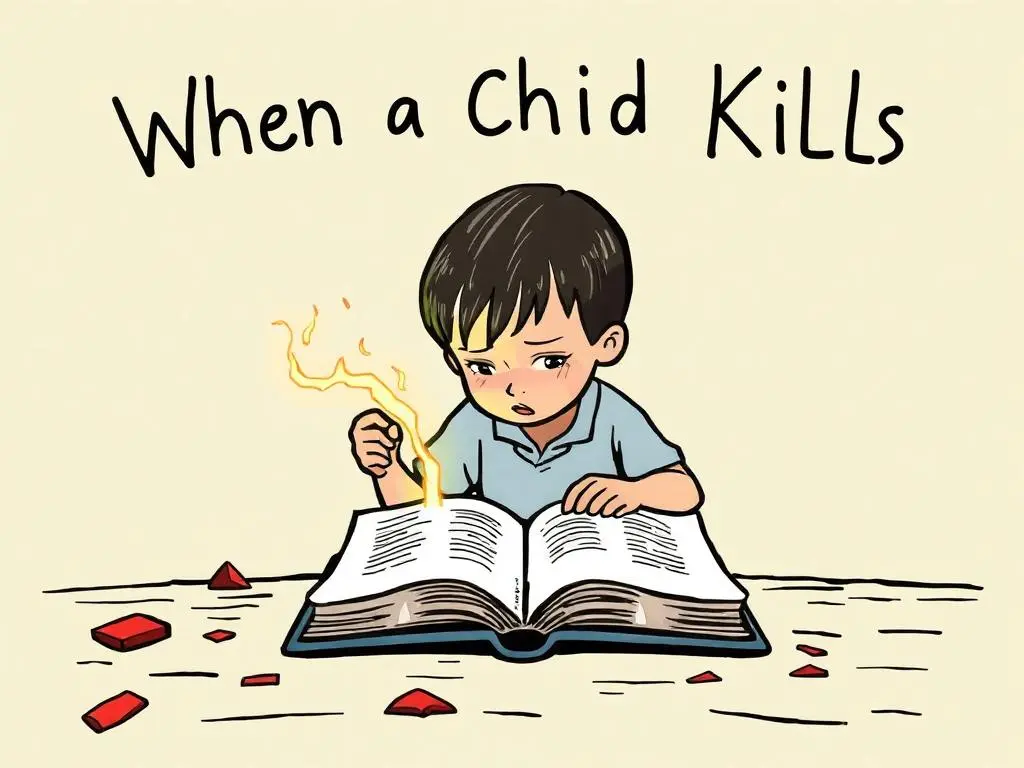Seventh Grade! Now in WonkyVision!

Everybody feels like a freak in middle school. As the father of two teenagers who have recently emerged from puberty, I can tell you that children are freaks in middle school. Bodies stretch and bend like Silly Putty. An arm may grow six inches overnight. Emotions are even more malleable. No wonder so many of us look back on those years with about as much fondness as we have for cafeteria food. It makes sense, then, that teenagers want so badly to fit in. After all, when you feel like a freak, the desire to blend in with the crowd must be overwhelming. As Ross Maloy, the protagonist of Rob Harrell’s terrific new book, WINK (Dial, 320 pp., $16.99; ages 9 to 12), says: “Can I tell you how sick I am of being different? I hate it! You have no idea what I’d give to be normal.”
By most measures, Ross is already a normal seventh grader doing normal seventh-grade stuff: learning guitar, playing video games, dealing with a bully and drawing his homemade comic strip, “Batpig.” What sets Ross apart from his classmates is his cancer diagnosis. He has a rare type, “a mucoepidermoid carcinoma of the lacrimal gland,” which threatens his eyesight and his life.
Illness has long been a popular theme in Y.A. fiction, but in “Wink” matters of seventh-grade social standing are treated with the same life-or-death seriousness as matters of, well, life and death.
Sickness and health may be important, but so is impressing the pretty and popular skateboarder girl. A clump of radiated hair falling onto the crush’s pizza slice is just as bad as anything else Ross is undergoing — or maybe worse: “Some of my eye goop is mixed in with the hair, holding it together and making it look waaay grosser.” An accompanying sketch of a hamster on a slice of pizza illustrates the grossness.
If this sounds irreverent, it is. The novel’s irreverence is its strong suit. Seventh-grade boys (and the men they grow into) don’t always have the emotional vocabulary to deal with their anxieties. Sometimes they make jokes, or smash things, or withdraw. Sometimes they just break down. All these behaviors are on display in “Wink,” not only in Ross but also in the other teenagers who populate the well-rounded cast and are dealing with their own adolescent difficulties, large and small.
Ross’s best friend, Abby, finds out she and her family are moving from Indiana to Minnesota. Another friend, Isaac, breaks their “Great Oreo Friend Pact” shortly after learning of Ross’s diagnosis. Another boy threatens his life after Ross accuses him of circulating a cruel meme among their classmates. It’s a lot for one kid to handle. Humor helps.
Harrell never downplays or sugarcoats the gravity of his hero’s situation, but he wisely steers clear of melodrama, allowing Ross to have his good days and bad without slowing the story.
Late in the book, as the sight in Ross’s right eye begins to fade, Harrell marks his character’s grief: “My stomach drops, and I stop in my tracks. I’ll never have normal vision again.” But in the next moment, Harrell grants him levity: “Seventh grade! Now in WonkyVision!”
The book’s authenticity is hard-earned. Harrell endured the same cancer as his hero, although he received his own diagnosis as an adult, not an adolescent. In the acknowledgments section he writes, “The puffy eye, the surgery, the dime slot scar, the hair loss, staring at the big X, the eye goop, the vision loss: That all really happened. Even the dumb hat.”
Harrell’s genius is making all of it feel authentic for a seventh grader, a teenager who, like countless others, just wants to be normal. His cancer gives him no special insights into the human condition. He experiences no epiphanies worthy of a “Today” show interview, as Ross complains to his father.
Instead, he slowly begins to accept that his new life, for ill or good, will never be like his old. Bodies change, people change, life continues. It’s a lesson a lot of us have been learning, and relearning, in recent days.




